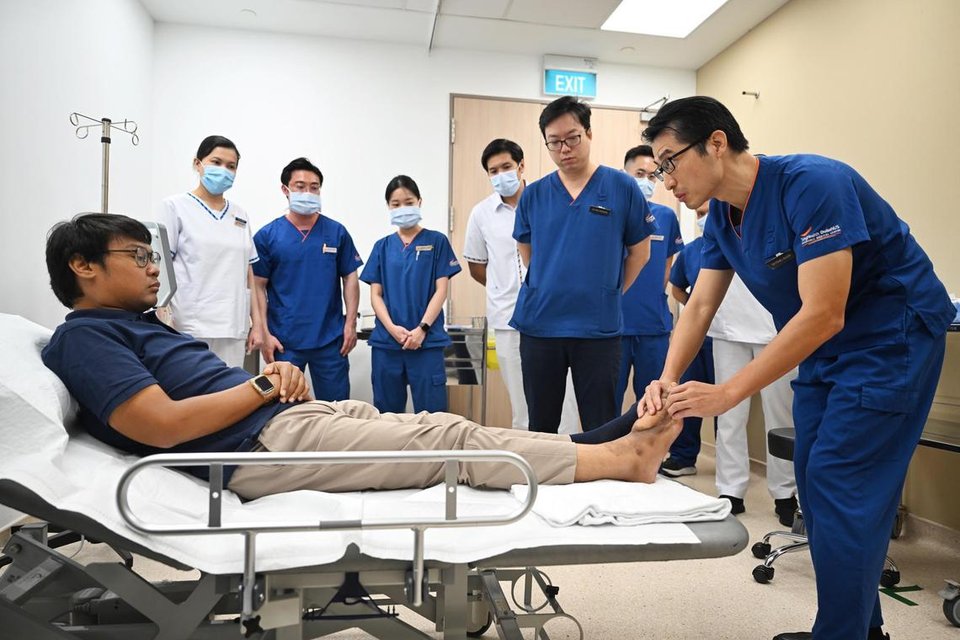Healthier SG: Six things you need to know about Singapore's healthcare reform plan

Published on
04 Oct 2022
Published by
The Straits Times
SINGAPORE - Described by Health Minister Ong Ye Kung as a "fundamental re-orientation and reform" of the Republic's healthcare system, Healthier SG aims to put a stronger emphasis on preventive care, pairing residents with family doctors to help them better manage their health.
In his speech in Parliament before the debate on the Healthier SG White Paper, Mr Ong spelled out some of the benefits of the strategy.
1. A family doctor
Healthier SG encourages residents to enrol with a family general practitioner (GP) who knows their conditions well and can work with them to practise preventive care.
However, people will still be able to change GPs. In the first two years after enrolment, residents will be allowed to switch doctors up to four times to find one they prefer.
Subsequently, they will be permitted one change a year to allow for personal preferences and changes such as moving house.
People will also still be able to visit other doctors, such as specialists treating their chronic illnesses.
Mr Ong said on Tuesday that the authorities will also try their best to manage situations where there is huge demand for popular GPs, encouraging people to enrol early so as to be able to choose their preferred clinics.
2. Free health screenings
Once enrolled under Healthier SG, people will get free annual check-ups as well as nationally recommended vaccinations and health screenings, which will be fully funded by the Government.
These will include screenings for three common chronic conditions - type 2 diabetes, hypertension, and hyperlipidaemia (high cholesterol) - as well as breast, cervical and colorectal cancers.
More complex screenings, such as colonoscopies, will still be heavily subsidised, but will not be free.
Immunisations include influenza and pneumococcal jabs for all aged 65 and above, or have specific medical conditions.
3. MediSave use for drugs for chronic illnesses
Those using MediSave to pay for the treatment of chronic illnesses will no longer be required to co-pay 15 per cent of the costs, and instead can pay the full amount with MediSave.
Mr Ong noted that while most government subsidy schemes require some co-payment to reflect "sharing of responsibility", more subsidies were justified here as preventive care is a fundamental part of healthcare.
4. Additional subsidies
An additional subsidy tier will be introduced to the Community Health Assist Scheme (Chas) for common chronic disease drugs and drug price limits.
This is aimed at addressing the significant drug price differences between GP clinics and polyclinics, so as to encourage residents to stick with the family doctor of their choice.
All enrolled Singaporean Chas cardholders, including Pioneer and Merdeka Generation cardholders, will be eligible for this benefit.
Mr Ong noted however that prices would not be equal "down to the last cent", due to the different methods for calculating subsidies for polyclinics, and under Chas.
5. More healthy activities, infrastructure
Community partners such as the People's Association, Sport Singapore and others will organise more health-related activities, ranging from brisk walking to Zumba classes to community gardening.
Public infrastructure, such as sports facilities, parks and park connectors, will also be enhanced to support active lifestyles.
6. Earn points for physical activity
The Healthy 365 app, already used for initiatives such as the National Steps Challenge and the Eat Drink Shop Healthy Challenge, will be enhanced to include features such as tracking calorie intake.
The app - which awards points for taking part in physical activity and making healthier food purchases - has also been made compatible with more popular digital health apps such as Apple Health Kit and Fitbit to allow more people to benefit.
These points can be exchanged for public transport vouchers, as well as rewards at participating merchants.
Source: The Straits Times © Singapore Press Holdings Limited. Reproduced with permission.
ALL views, content, information and/or materials expressed / presented by any third party apart from Council For Third Age, belong strictly to such third party. Any such third party views, content, information and/or materials provided herein are for convenience and/or general information purposes only. Council For Third Age shall not be responsible nor liable for any injury, loss or damage whatsoever arising directly or indirectly howsoever in connection with or as a result of any person accessing or acting on any such views, content, information and/or materials. Such third party views, content, information and/or materials do not imply and shall not be construed as a representation, warranty, endorsement and/or verification by Council For Third Age in respect of such views, content, information and/or materials.







